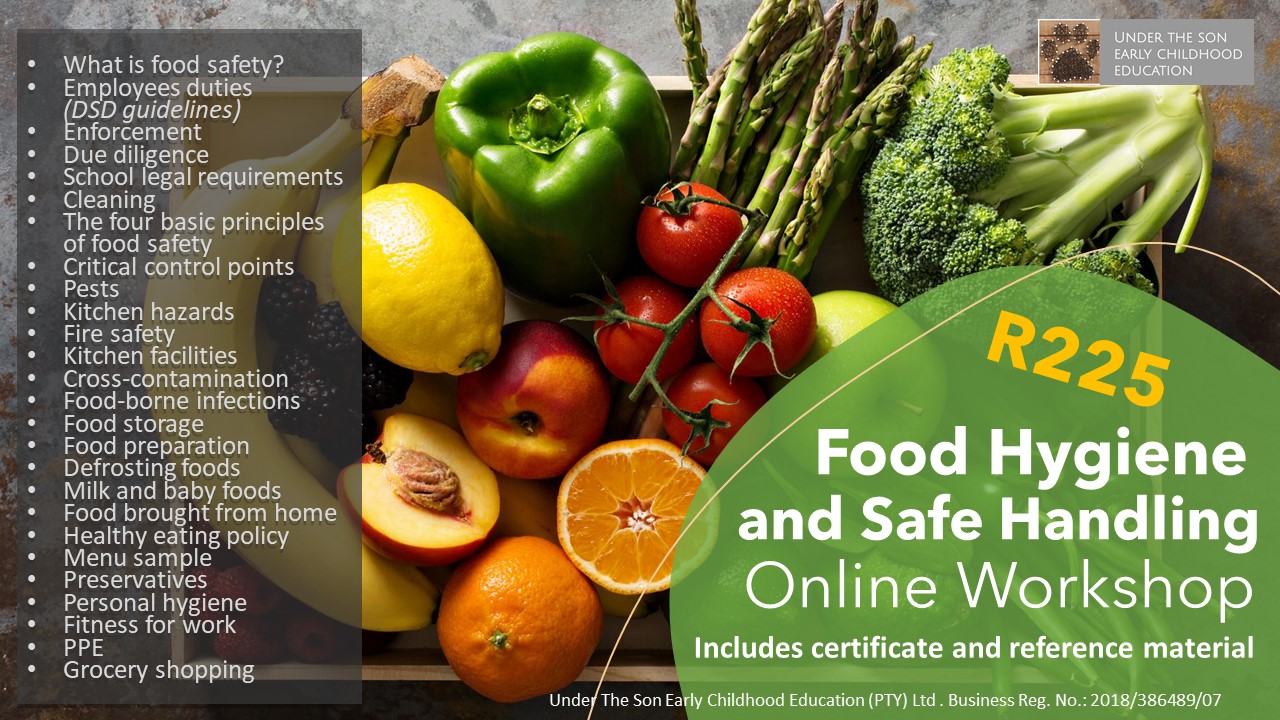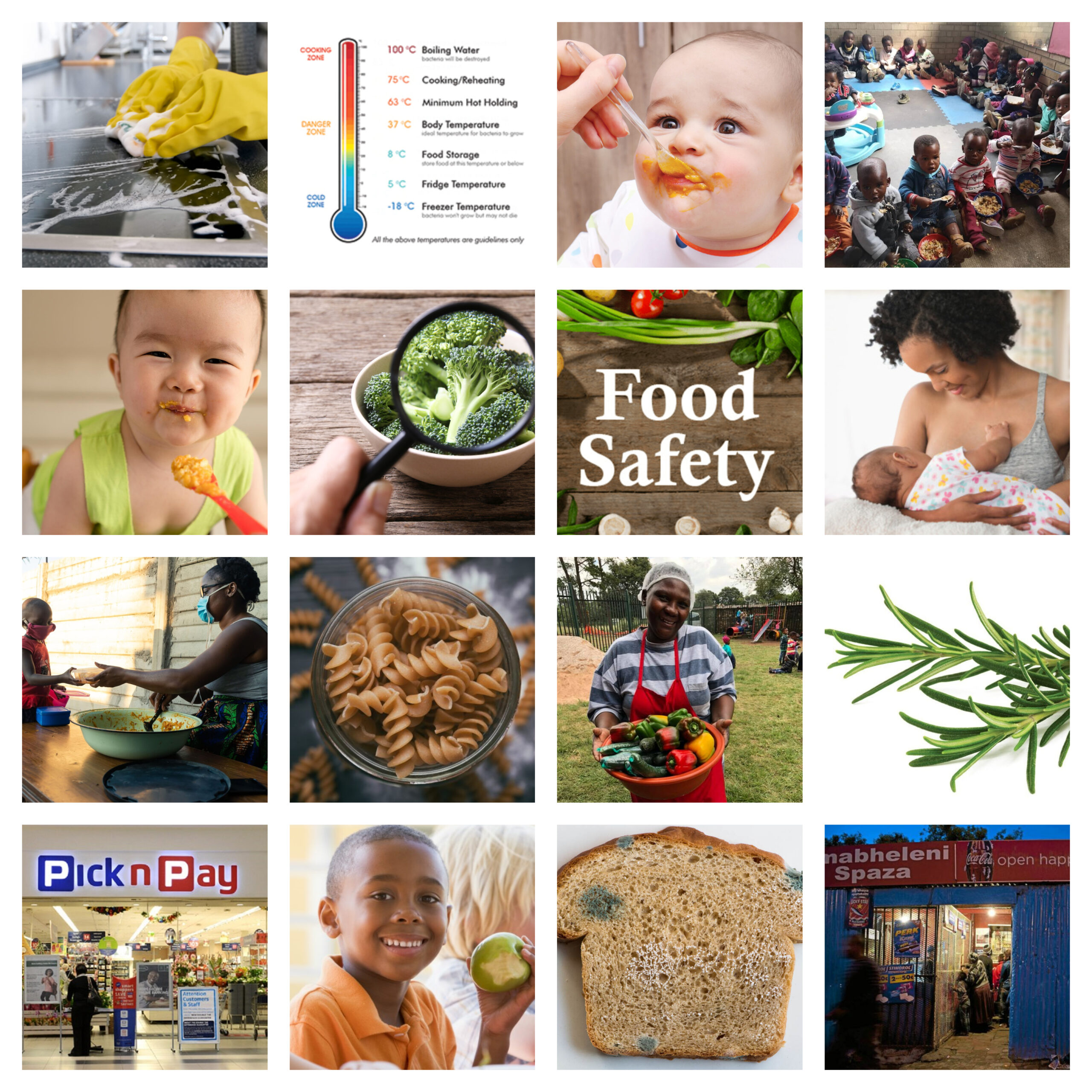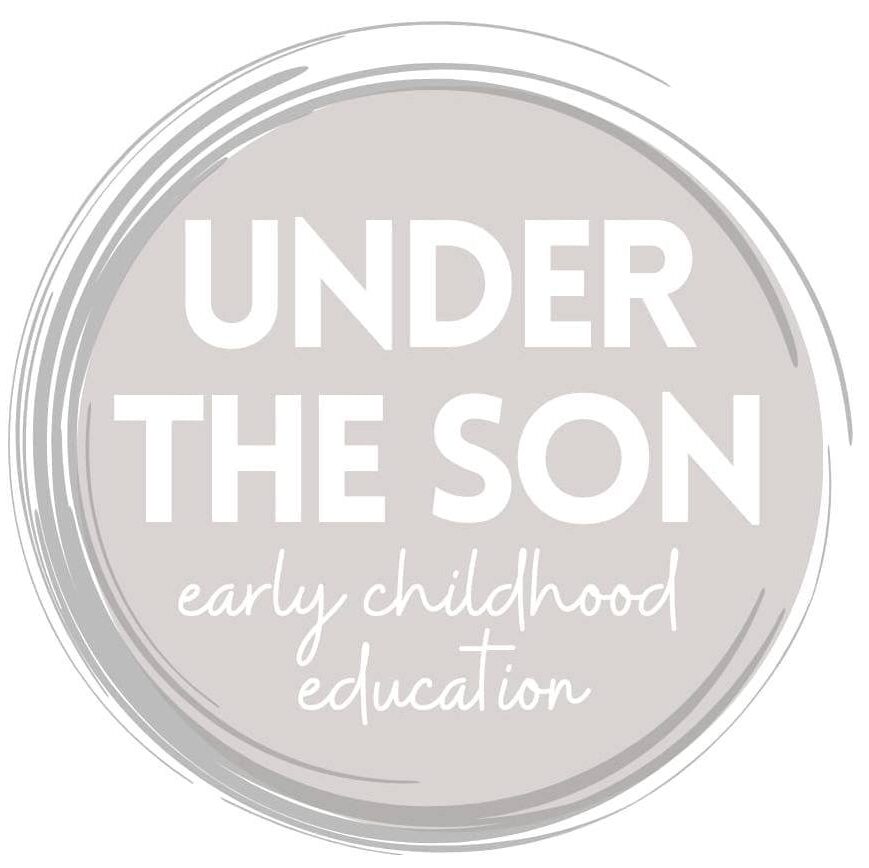Food Hygiene and Safe Handling
It is our statutory duty to make arrangements to promote the welfare of children, regarding nutrition and food storage, handling, processing and cooking procedures.
Department of Health’s Infant and young child feeding policy (2013). “Optimal nutrition during infancy and childhood is critical to ensuring optimal child health, growth and development. Inappropriate infant and young child feeding practices, for example, sub-optimal or no breastfeeding, and inadequate complementary feeding, are significant threats to child health.”

- Introduction
- What is food safety?
- Employees duties (DSD guidelines)
- Enforcement
- Due diligence
- School legal requirements
- The four basic principles of food safety
- Critical control points
- Kitchen hazards
- Fire safety in the kitchen
- Food-borne infections
- Kitchen facilities
- Cross-contamination
- Food storage
- Food preparation
- Defrosting frozen foods
- Milk and baby foods
- Breast milk
- Formula milk
- Baby food
- Food brought from home
- Healthy eating policy
- Menu sample
- Preservatives
- Pests
- Cleaning
- Personal hygiene
- Fitness for work
- Personal Protective Equipment (PPE)
- Records
- Grocery shopping
- Food safety overview
Course time: 1,5 hours approx
Course cost: R225 per person
Course dates: Please inquire below
To register for this course please email uts.workshops@gmail.com

